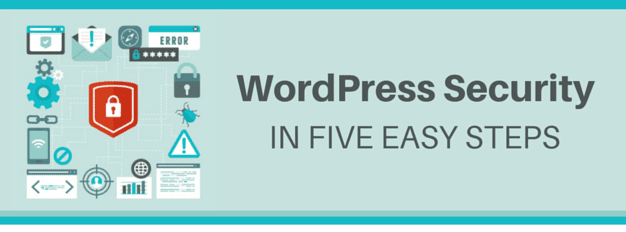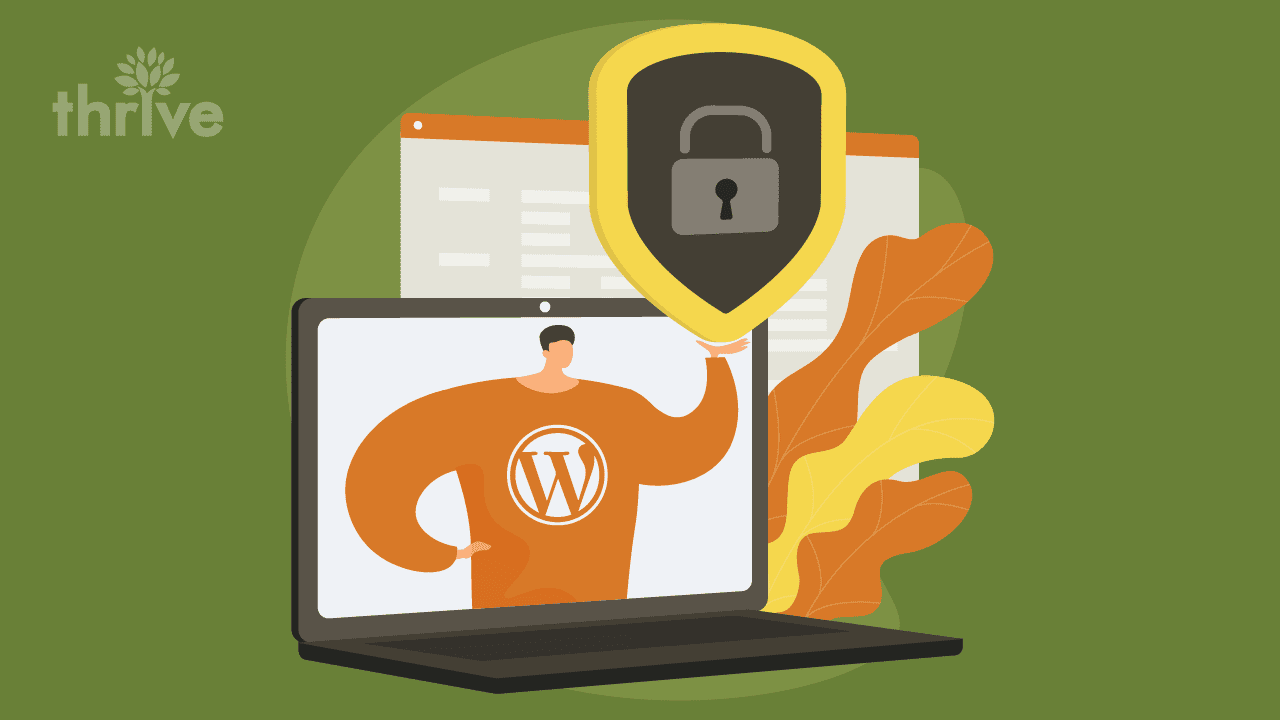
It is a common misconception that WordPress websites are not as secure as other websites. The truth is there is no website on the internet that is 100% secure. Just ask the CIA. However, there are still security measures that can make your site less vulnerable to hacker attacks. Put these 5 security steps into practice to maximize your WordPress site security and keep potential hackers at bay.
Back That WordPress Up!
Backing up your website is crucial to security. Performing regular backups will save most of your data if your website is hacked or falls prey to another security risk. In fact, backups are the most effective WordPress safety feature there is. If you share a hosting account that is compromised, you may find yourself especially in need of the backup system. The most recent backup of your website that you have available in this situation can be used to restore your website to a secure and functional version. It is important to remember, the more accessible your website becomes, the more security threats you’ll face. This means that all things related to security, including backups, should be approached with a balanced mindset.
Limit Login Attempts
An easy way to add security to your website is to limit the number of times a user can log in. Due to the WordPress dashboard login process, many WordPress websites are hacked through the control panel itself. Because WordPress will allow you to attempt a login as many times as you want, hackers can exploit this loophole and run a script that uses thousands of common passwords until it finds a match. By adopting plugins and other software that prevents a number of times you can attempt to login on your website, you can severely limit the risk of exploitation.
Complicated Passwords
Overly simple or predictable passwords are where most site owners make their biggest security errors. A complicated password may be harder to remember, but it goes a long way towards preventing your website from being hacked. The soundest security infrastructure in the world isn’t enough to prevent your website from getting hacked if “password” is your password. Experts explain that the most secure passwords use uppercase and lowercase letters, numbers, as well as symbols. Dictionary words are particularly vulnerable for exploit due to hacking programs that guess random words. Consequently, the most secure passwords are typically the one’s that don’t make sense in a sentence and are hard to remember. Your WordPress login should also be different from any other login you use on the Internet as well as from your FTP access password.
Two-Factor Authentication
Wi-Fi networks and public internet access make it possible for anyone to track the things you type into your browser. Some hackers use programs to record all traffic that moves through a public Wi-Fi connection. Many banking institutions give you the option to secure your online transactions through a two-factor authentication process. This means that they request two different forms of proof that you own the account. This strategy may have originated by financial institutions, but it is a great way to secure your WordPress website as well.
Update Carefully
There is a variety of WordPress plugins available through the convenience of your WordPress dashboard, but not all plugins are beneficial. It is important to regularly install updates and delete unused plugins because they can leave your website vulnerable to attack. Updated plugins are constantly being secured by their developers, but outdated plugins often have weaknesses that can easily be exploited by hackers. Staying up-to-date with the latest plugins keep your website from getting left behind. The same can be said for themes. WordPress code is visible to everyone. So if a known security flaw is discovered in outdated plugins and themes, any website that still uses them is vulnerable.
WARNING: Updating anything in WordPress without consulting an experienced WordPress developer can shut down an entire website. So tread carefully!
Securing your WordPress website might seem like a daunting task, but it can save you thousands of dollars from having to rebuild a new website from scratch. While some of these 5 steps can be done by yourself, many of these steps should always have a WordPress professional consulted.
Click here or call us at 817-642-9686 for a free WordPress website consultation now!
